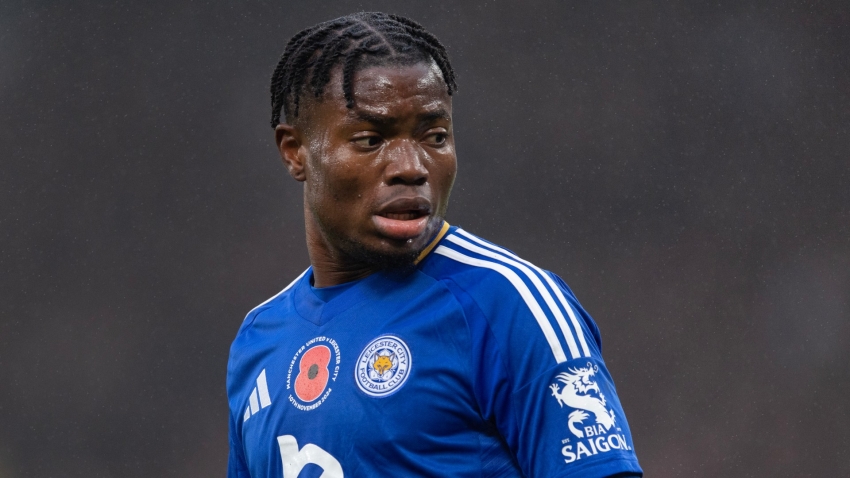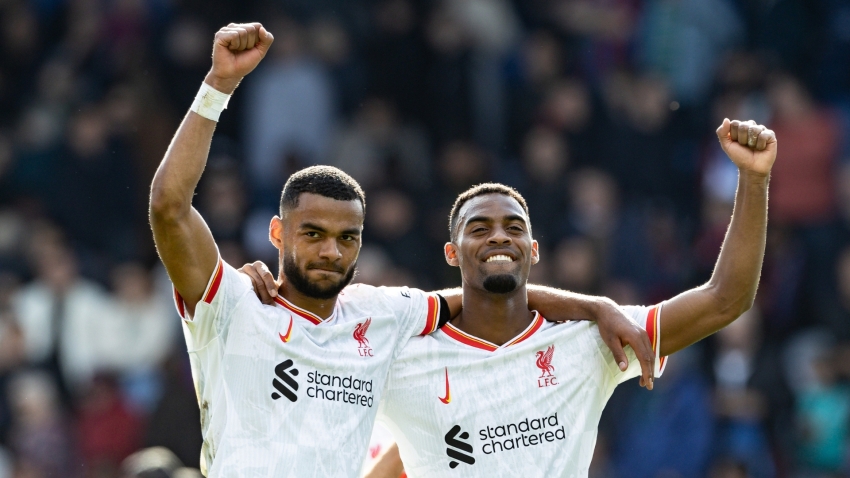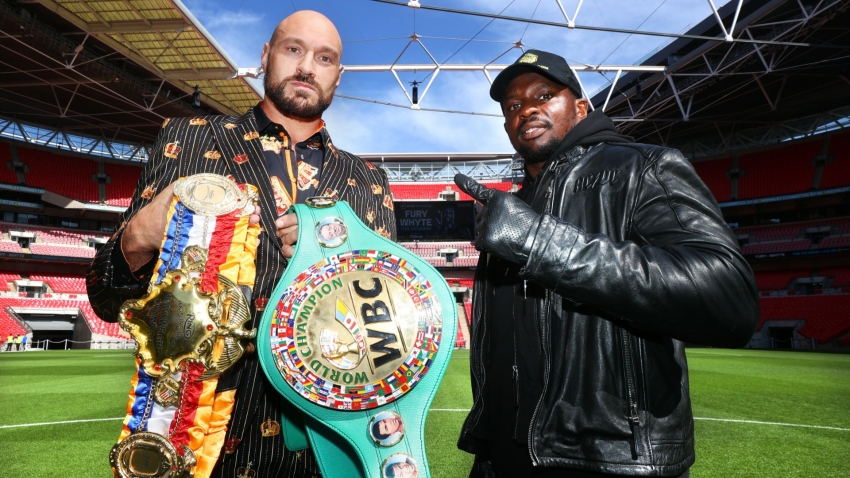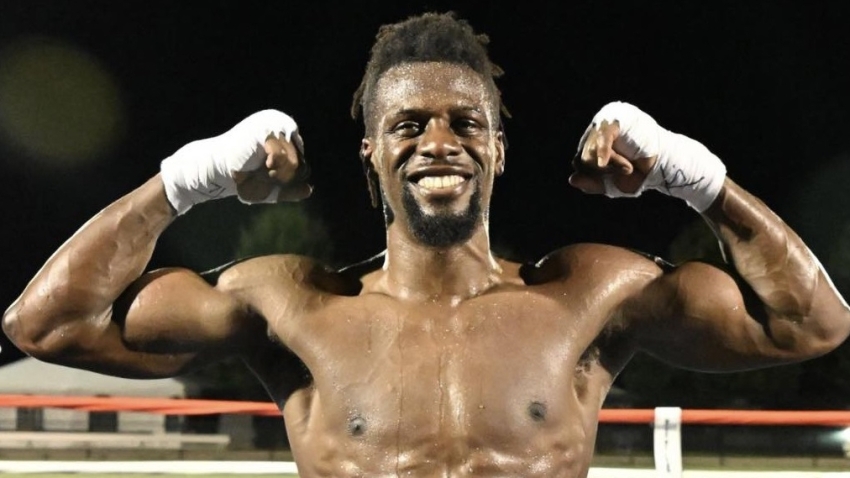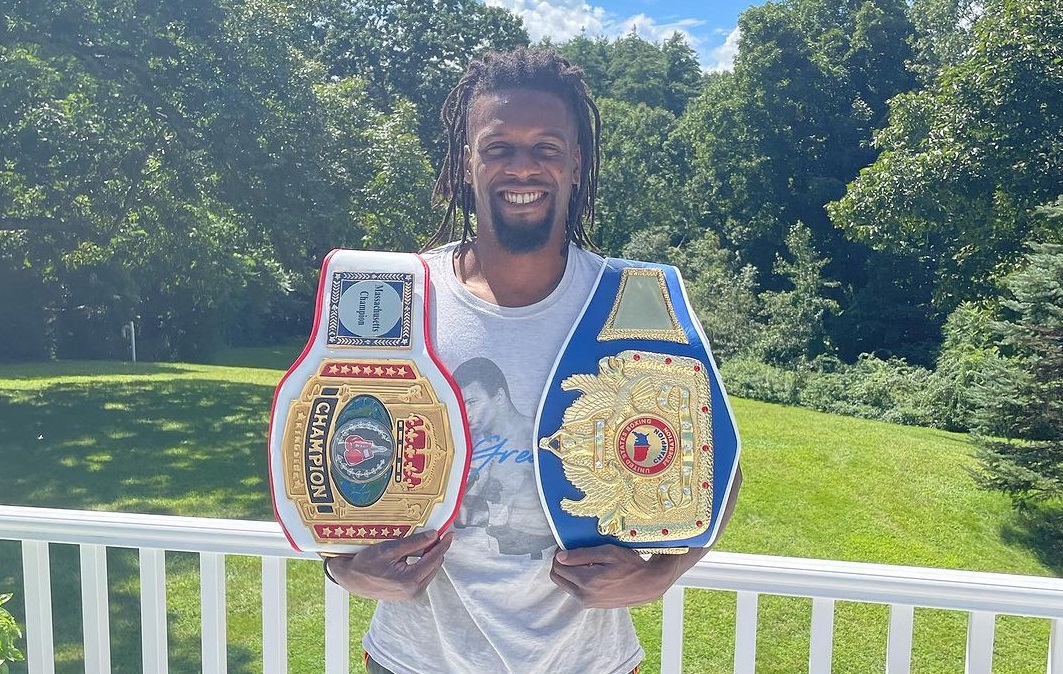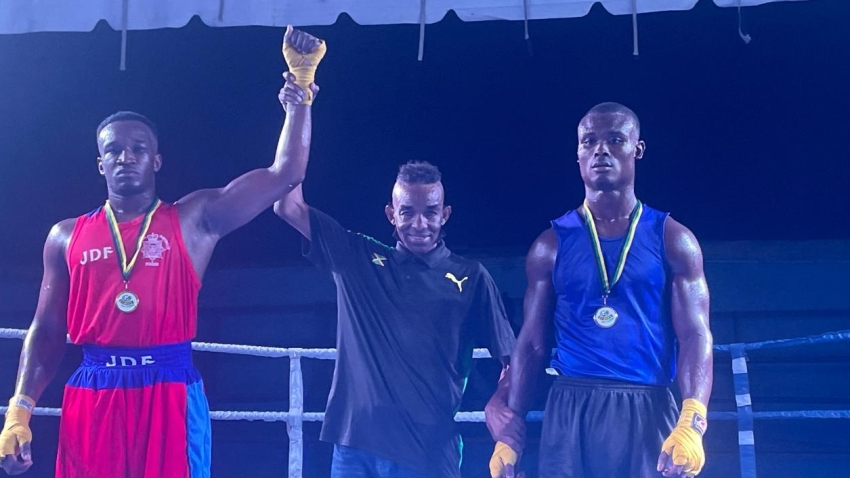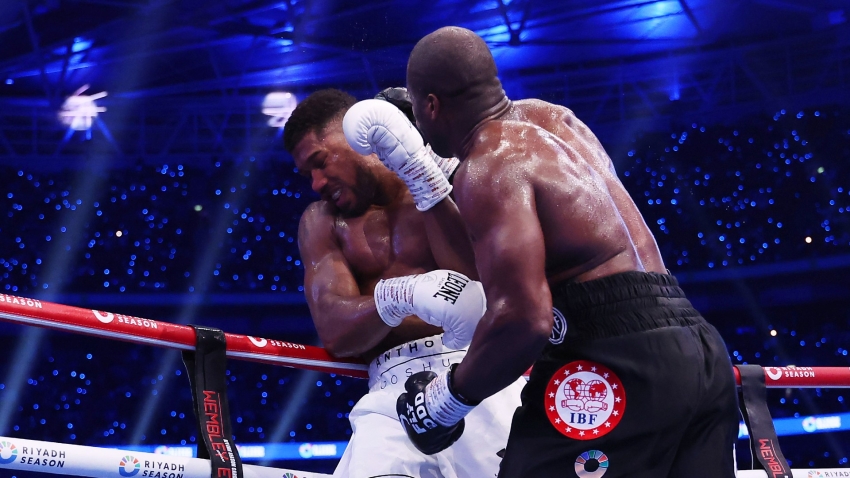Tyson Fury is set to defend his WBC world heavyweight title against Dillian Whyte on Saturday, and while all logic points to smooth sailing for the champion, there may be more factors at play than meets the eye.
Fury is arguably the top pound-for-pound talent in boxing, and at six-foot-nine with a seven-foot wingspan, he is one of the sport's toughest puzzles to crack.
The 33-year-old sports a record of 31 wins and one extremely controversial draw against Deontay Wilder, which he avenged twice with back-to-back finishes of the heavy-handed American.
In a vacuum, 'The Gypsy King' by unanimous decision seems like the overwhelmingly likely result as his physical gifts and boxing skill should allow him to rack up rounds on the judges' scorecards as he picks apart the slower, smaller Whyte from the outside.
Whyte, at six-foot-four, is the shortest opponent Fury has faced since Sefer Seferi in June 2018.
But fights are not fought in a vacuum, and there are some familiar storylines clouding over the head of the reigning champion that could mean the Fury we see on Saturday may not be the same animal that dominated Wilder.
Fury's last dance
First and foremost, Fury is adamant that this will be his last fight, and he will retire in the ring this weekend – win, lose or draw.
Fighter retirements must always be taken with a grain of salt, given the fact that it has now become a common tactic among top attractions in order to drum up massive interest in their eventual return.
However, Fury's feels different. This week he has been outspoken with the media about his desire to retire after his last fight with Wilder, but the prospect of returning home and fighting in front of 94,000 at Wembley convinced him to go around one more time.
"It's been a long old ride, it’s quite emotional to be honest," he said.
"All this, the ride of starting as a little kid and wanting to be heavyweight champion, and then to finally be hanging up the gloves.
"And I know nobody believes me, because they all think I'm after money or whatever else – there's only a certain amount of people who know that money doesn't mean anything to me."
Simply put, Fury is only fighting for the honour of retiring undefeated, and the biggest fights of his career – taking the world championship off Wladimir Klitschko, and coming to America to take on Wilder – are behind him.
Fury will still have his skills, his size and his experience when he steps into the ring against Whyte, but the history of combat sports is littered with examples of fighters who have fought with one foot out the door, and that desire to continue to be great, and dominant, is something that can fade.
'Marvelous' Marvin Hagler once said "it's tough to get out of bed to do roadwork at 5am when you've been sleeping in silk pyjamas", and there is no heavyweight alive with silkier pyjamas than Fury right now.
Whyte, on the other hand, is heading into the fight of his life, and his last real opportunity to propel himself into the realm of boxing royalty.
At 34, with two losses on his record, the only way someone at Whyte's level can leap into the next stratosphere as a prize-fighting main attraction is to win a marquee fight against someone currently wearing the crown.
Add in the fact that he is an Englishman, raised in Brixton, living out the dream of competing at Wembley in the biggest fight of his career, and from a motivational standpoint, it appears the advantage is clearly in Whyte's corner.
Fury the boxer, or Fury the entertainer?
Much has been made of Fury's change in trainers late in 2019, where he began training under the tutelage of SugarHill Steward.
The stylistic changes have been apparent, and in Fury's own words: "I punch a lot harder, I use a more aggressive style, and I'm looking to get people out of there rather than out-box them."
He has only fought twice with Steward in his corner, and both times were against Wilder – a boxer solely focused on landing a knockout, with no interest in stacking up rounds with patient boxing.
Whyte approaches things far differently. He does not head-hunt – a trait that earned him the nickname 'The Body Snatcher' – and he is more than happy to win by decision.
Given Fury's incredible size and movement skills, a game-plan centred around attacking the body – which moves around far less than the head – is the most sustainable way to tally scoring punches.
Whyte has never been knocked out in 52 combined professional fights across boxing, kickboxing and mixed martial arts, so if Fury is in there looking to end his career on a high with one big shot, Whyte can steal three or four early rounds and turn it into a tight decision.
Great Whyte hope
Not to get lost in Fury's skill superiority is the fact that Whyte is, obviously, very talented in his own right.
His first loss came against Anthony Joshua back in 2015, and it was the first time Whyte had been faced with an undefeated professional opponent with more than five fights.
Needless to say, he was not ready, but was still able to take multiple rounds off the Olympic gold medallist before his eventual demise in round seven.
Since then, Whyte has successfully dealt with fellow world title contenders Dereck Chisora (twice), Lucas Browne (by knockout) and Joseph Parker, and after being derailed by Alexander Povetkin in August 2020, he responded by knocking him out in the rematch eight months later.
That knockout earned Whyte this shot at Fury, and in his long, winding road to his chance at the taking the throne, he has proven his ability to respond to adversity, win close fights and do damage to elite heavyweights.
If Fury is truly done, Whyte could be the man tasked with carrying the torch for British heavyweight boxing going forward, and a win could set up another English mega-fight – this time with Joshua.










